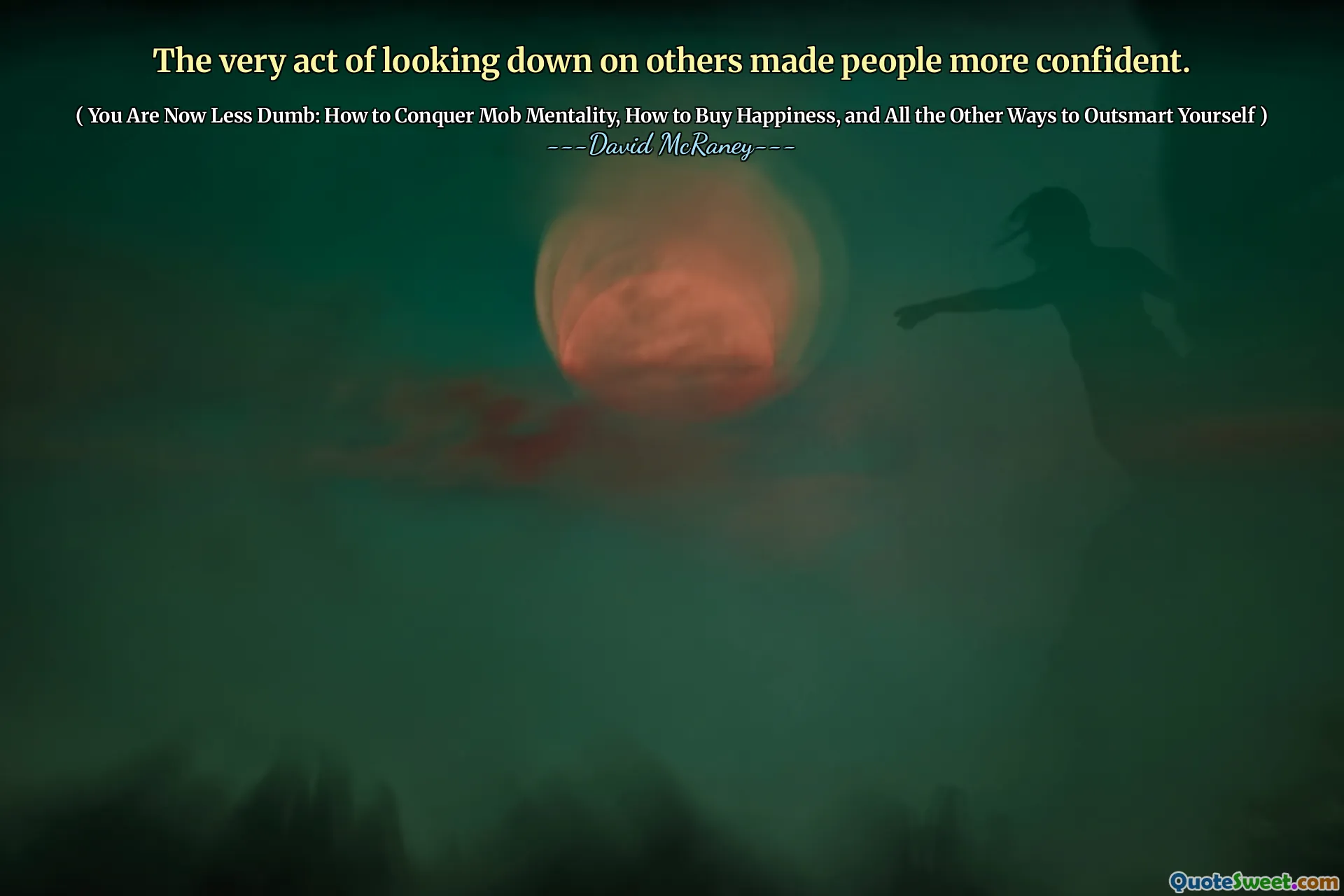
The very act of looking down on others made people more confident.
This quote captures a profound psychological insight into human behavior and self-perception. It highlights a paradox where individuals, instead of gaining confidence through genuine achievement or self-improvement, derive a false sense of confidence by demeaning or feeling superior to others. This behavior underlines a common cognitive bias where people seek to elevate themselves by comparison rather than by their own merit. In social and psychological contexts, this act of 'looking down' acts as a defensive mechanism, a shortcut to boost self-esteem without addressing deeper insecurities.
Reflecting on this, it is clear how such dynamics can ripple into broader societal implications. When confidence is built on the subjugation or diminishment of others, it can foster toxic competitive environments, reinforce social hierarchies, and contribute to divisiveness. It might explain phenomena related to mob mentality, bullying, and discrimination, where group members boost their collective standing by excluding or belittling out-groups. Furthermore, this false confidence could mask underlying vulnerabilities that remain unaddressed, ultimately undermining long-term personal growth and collective harmony.
From a personal development standpoint, this quote encourages a profound introspection on the foundations of our confidence. It prompts us to question whether our sense of self-worth rests on internal strengths and values or external comparisons and judgments of others. Learning to disentangle confidence from superiority could lead to healthier self-esteem and more empathetic social interactions. Ultimately, embracing humility and genuine achievement over condescension could foster not only individual fulfillment but also more positive and inclusive communities.






